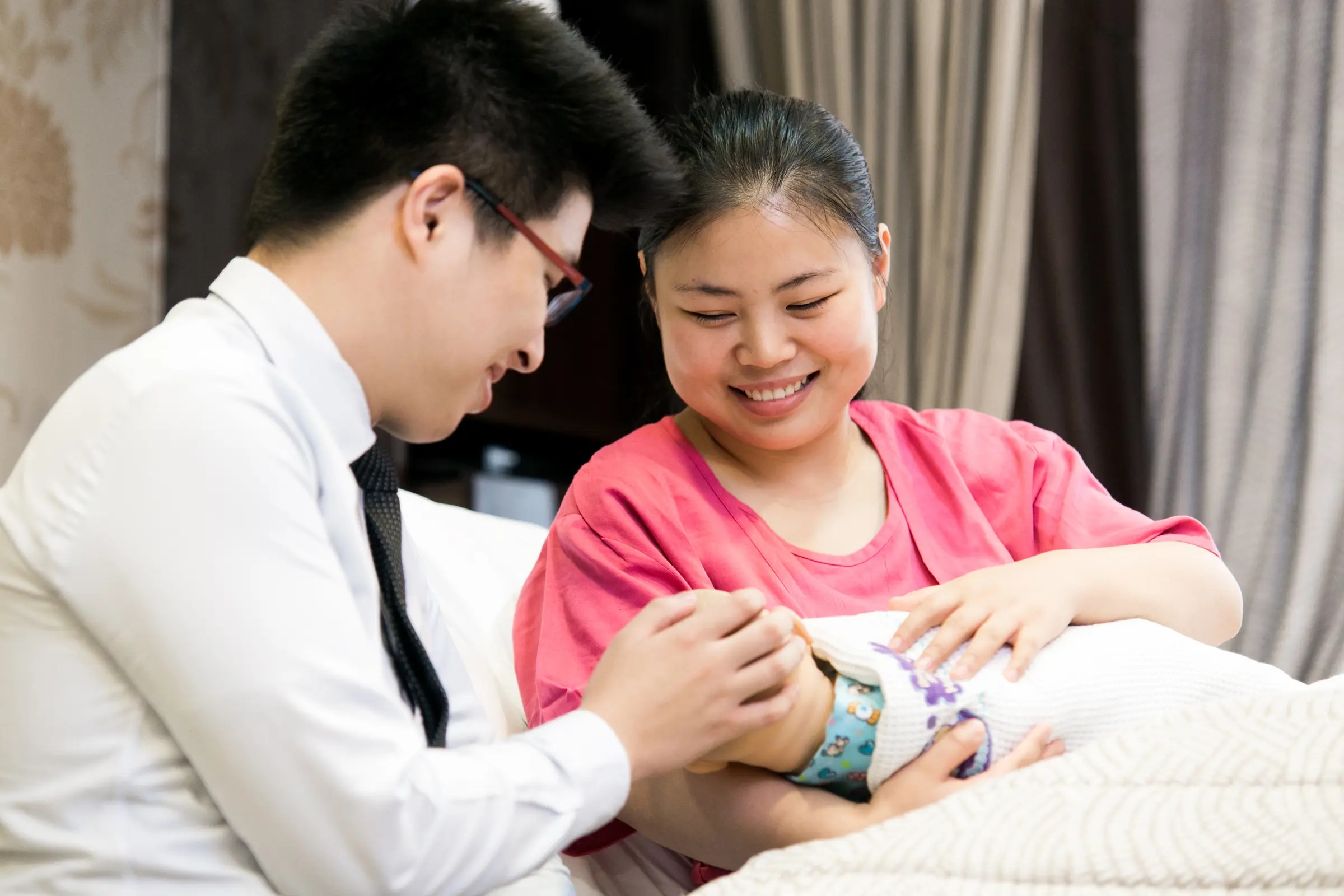| Arrival time | Where to register |
|---|---|
| Hospital front office |
| 24-hour Urgent Care Centre (UCC) |
| Arrival time | Where to register |
|---|---|
| Hospital front office |
| 24-hour Urgent Care Centre (UCC) |


Learn what to expect when giving birth to a baby at Mount Elizabeth Hospitals and how to prepare for childbirth.
In this page
Once you have booked your maternity package, you may pre-register any time before your delivery. This will speed up your admission when your due date arrives.
You may either:
| Mount Elizabeth Hospital |
|
| Mount Elizabeth Novena Hospital |
|
Once you have pre-registered, all you need to do is prepare your hospital bag. Prepare your bag and place it in a convenient location, so you can simply take it with you when the time comes.
Your maternity package at Mount Elizabeth Hospitals includes basic amenities, so you only need to bring personal essentials.
Labour is different for every mother, but here are some common signs to look out for:
Recognising these signs will help you get to the hospital in time for your delivery.
For a better patient experience, here are some important things to take note of.
Depending on your arrival time, you may register at our hospital front office or 24-hour Urgent Care Centre (UCC).
| Arrival time | Where to register |
|---|---|
| Hospital front office |
| 24-hour Urgent Care Centre (UCC) |
| Arrival time | Where to register |
|---|---|
| Hospital front office |
| 24-hour Urgent Care Centre (UCC) |
All delivery wards at Mount Elizabeth Hospitals are efficiently designed to facilitate safe labour and birth. Our suites are located in close proximity to the Operating Theatre (OT) and the Neonatal Intensive Care Unit (NICU) for a seamless operational flow. This ensures timely care for mother and child in case of emergencies.
To support mothers who opt for a natural birth, we offer a range of pain management options, including:
Our staff are professionally trained in midwifery and have experience dealing with complex situations, such as when medical intervention is required for mother and child.